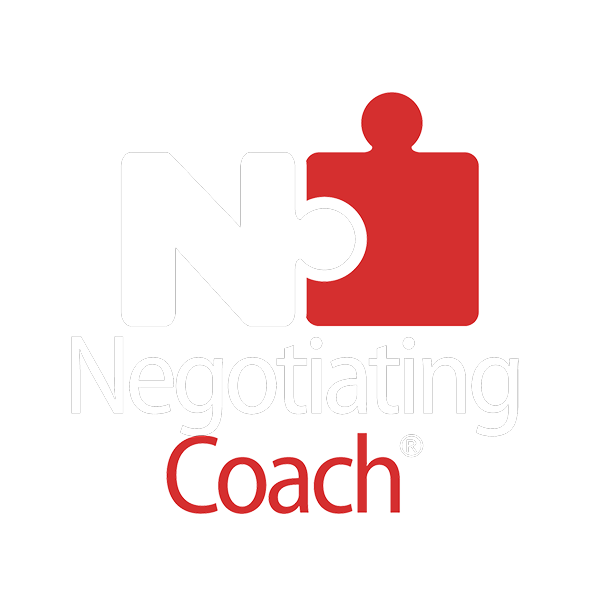Navigating Healthcare Sales Negotiations in a Changing Landscape
Navigating Healthcare Sales Negotiations in a Changing Landscape
Strategies and Tactics for Success in the Evolving Healthcare Market
Are you and your sales/marketing teams trying to address significant challenges and barriers when negotiating with healthcare institutions? In the rapidly evolving and challenging world of healthcare, it’s essential to adapt sales, marketing, and negotiation strategies to address the changing dynamics successfully.
Whether you’re dealing with hospitals, clinics, dental practices, imaging centres, group purchasing organizations (GPOs), or healthcare networks, this article will illuminate the evolving healthcare landscape and provide some valuable negotiation insights, strategies, and tips to improve results.
The Reality of Healthcare Sales Negotiations:
In today’s healthcare sector, sales negotiations are more complex than ever. Procurement teams are becoming savvier negotiators – they are becoming skilled at evaluating vendors and leveraging situational power for cost reductions, added value delivery, and better contractual terms and conditions to achieve savings for strained budgets. Despite their significant market dominance, even the billion-dollar healthcare suppliers will eventually face customer pressure to reduce pricing and add incremental value to win deals.
The following challenges facing healthcare sales and marketing organizations are problematic:
- Surgeons and key opinion leaders (KOL) no longer have the influencing or decision-making power they once did.
- Increased sophistication in healthcare product/services sourcing and assessment processes.
- Companies with proprietary healthcare products and innovations struggle for market share.
- Tight hospital budgets with high non-clinical overhead costs.
- Difficulty in reaching decision-makers.
- Turnover in healthcare procurement personnel.
- Healthcare value-assessment committees lengthening the sales cycle.
- Challenges in scheduling product evaluations and trials.
- Procurement’s obsession with cost savings.
- The continued use of request for proposal (RFP), request for quote (RFQ), and request for information (RFI) processes.
- Elongated selling cycles, poorly written value propositions, and weak day-to-day communication practices.
- Consultants are driving cost-cutting initiatives. …and many more.
In this article, I’ll delve into some of the intricacies of healthcare sales negotiations. While I can’t cover everything in this article, I’ll provide several helpful insights, strategies, and tips to navigate this ever-changing environment.
The Changing Face of Healthcare Sales Negotiations:
Gone are the days when surgeons and clinicians solely drove product selection in healthcare. Today, procurement departments wield significant influence, and sales teams must adapt. Investing in negotiating skills training and revising your value proposition messaging is critical for success.
The Impact of Rising Healthcare Costs:
With healthcare costs continuously rising, institutions must cut expenditures while maintaining quality, value-based patient care. Healthcare sales teams must understand the financial pressures faced by all members of the institution’s ‘buying centre’ and align their offerings and value propositions accordingly.
Negotiating with Procurement: A New Ballgame:
Traditionally, healthcare sales negotiations focused on surgeons and clinicians. Now, suppliers must cater to the demands of procurement teams. Don’t overwhelm healthcare procurement and supply chain personnel with too much clinical data; put all the regulatory and clinical information and detailed product specifications in the exhibit or appendix sections at the back of your presentations or proposals (where they belong.) Don’t waste time showing supply chain personal information that will not influence the final decision.
Additional Insights and Tips for Successful Healthcare Sales Negotiation:
- Understand the Procurement Process: Learn procurement teams’ decision-making criteria and priorities.
- Understand the Buying Centre: Most sales organizations I teach need to learn how to develop a better working knowledge of the people in any institution who make or influence decisions.
- The Sales/Marketing Challenge: Improve alignment and cooperation between your company’s sales, marketing, and product management teams.
- Do Your Research: Carefully and thoroughly research customer personnel and information about each institution or customer.
- Stay Informed: Keep up with non-clinical healthcare industry trends, regulations, and technologies.
- Customize Your Approach: Tailor sales and negotiation strategies to each healthcare institution.
- Contract Negotiations: Understand how negotiations impact letters of agreement, supply agreements, and contracts. Most organizations have seriously flawed contracts.
- Emphasize Value and Cost Effectiveness: Highlight the value and cost-effectiveness of your products and/or services. Also, determine the ‘switching costs’ if your company is the incumbent vendor for capital equipment, medical devices, equipment or supplies, and there is a risk of losing business to a lower-priced competitor.
- Build Strong Relationships: Foster positive relationships with procurement professionals. Don’t avoid these people. Don’t wait to be told by surgeons or other clinical personnel that you must “meet with purchasing” – after you’ve let the “value cat out of the bag.”
Conclusion:
In any aspect of healthcare, a one-size-fits-all sales, marketing, and negotiation approach no longer works. As procurement teams gain prominence and dominance, understanding their needs is critical to successful negotiations. As healthcare costs rise, providing cost-effective solutions becomes crucial.
Suppliers must spend less time on clinical product education/training and provide sales, marketing, and cross-functional personnel with training in real-world business skills. Companies need expert troubleshooting advice and negotiation skills training to help build strong relationships with healthcare procurement professionals to secure mutually beneficial deals – without compromising patient care or relationships with clinical personnel.
Remember: A negotiated dollar is a bottom-line dollar. You can’t make – or save money faster than when you’re negotiating.
Take Action and Invest in Our Expert Negotiating Training and Negotiation Coaching Packages, Negotiation Tools, and Online Course to Become a Better Negotiator.
» Negotiating Skills Training: Book a tailored in-house presentation, seminar or learning workshop for your organization.
Speaking Engagements – Industry Associations and Companies: Book a tailored, engaging, and impactful 60-minute to two-hour presentation at an upcoming meeting, conference or convention.
» Negotiating Coaching Packages: If your company is facing a challenging high-value negotiation and you need an expert to help you or your team – or you own a small business – or you’re an individual who needs practical negotiation advice, you can benefit from my investing in one of my three proven, results-producing negotiation coaching packages for individuals, small business owners or corporations.
» Digital Negotiation Learning Products: You can purchase my three E-books containing powerful strategies and tips. E-books: Forensic Blueprinting Questions For Effectively Selling and Negotiating Price or Fee Increases and Managing the Price-driven Sale, Selling and Negotiating Price or Fee Increases in Any Economic Environment, and Strategies and Tips on How to Effectively Manage the RFP/RFQ/RFI or Bid/Tender Process to Optimize Results and Outcomes.
You can also purchase the Negotiating Personality Type and Corresponding Negotiating Style Self-Assessment Questionnaire and Interpretation Results and my NEW Digital MP3 “Greatest Hits” Verbal Negotiating Phrases, Scripts, Questions, and Questioning Techniques. These helpful tools are in digital format and can be easily downloaded.
I provide a discounted Master Negotiator Bundle with all my Digital Learning Products.
» Online Sales Negotiation Course: If you’re in sales, sales management or a cross-functional role that supports sales, you can benefit from enrolling in my NEW self-paced Negotiating for Sales Success online course.
» Meet Negotiating Coach® Michael E. Sloopka
No part of this copyright material can be used without written permission from Selling Solutions Inc.
[/thrive_lead_lock]


